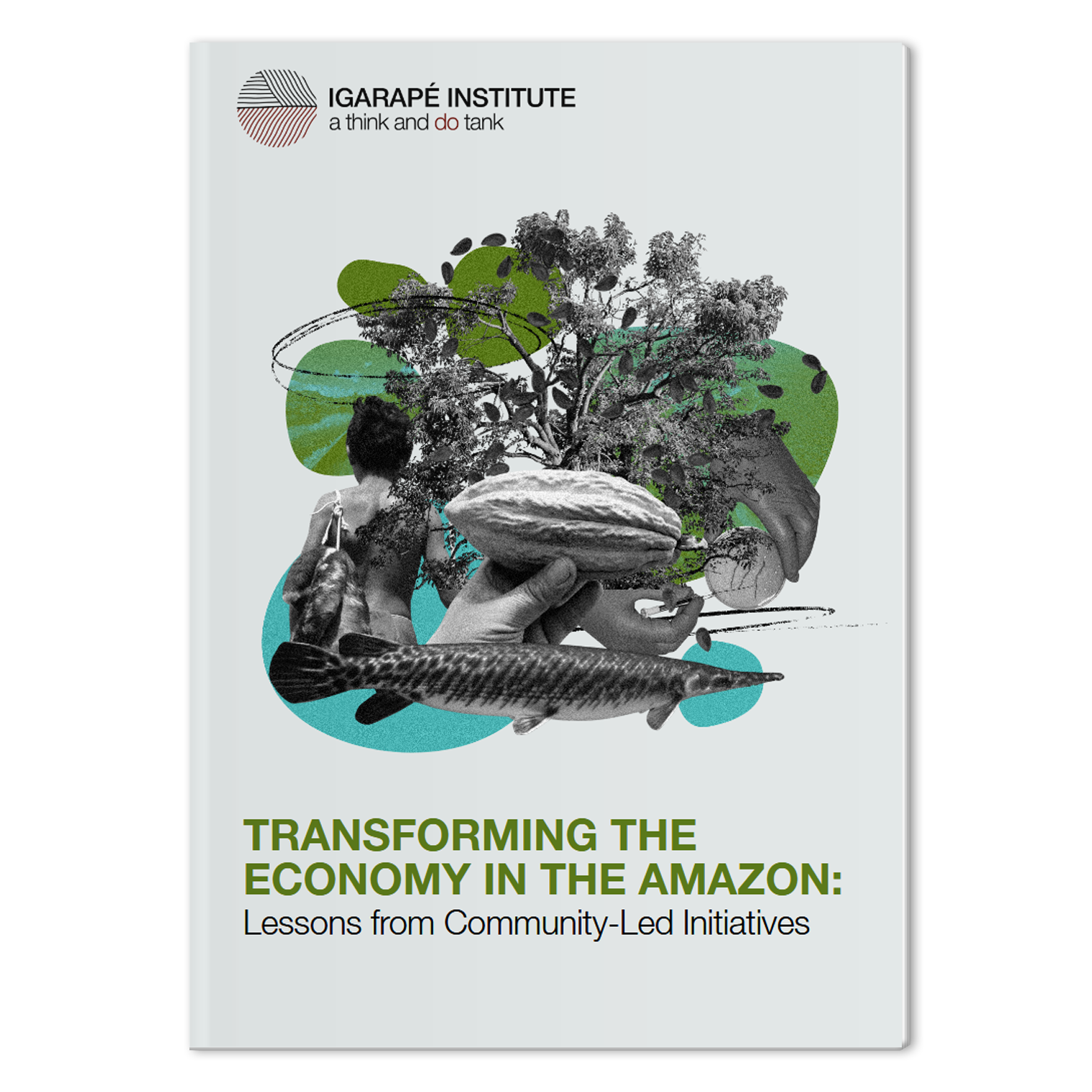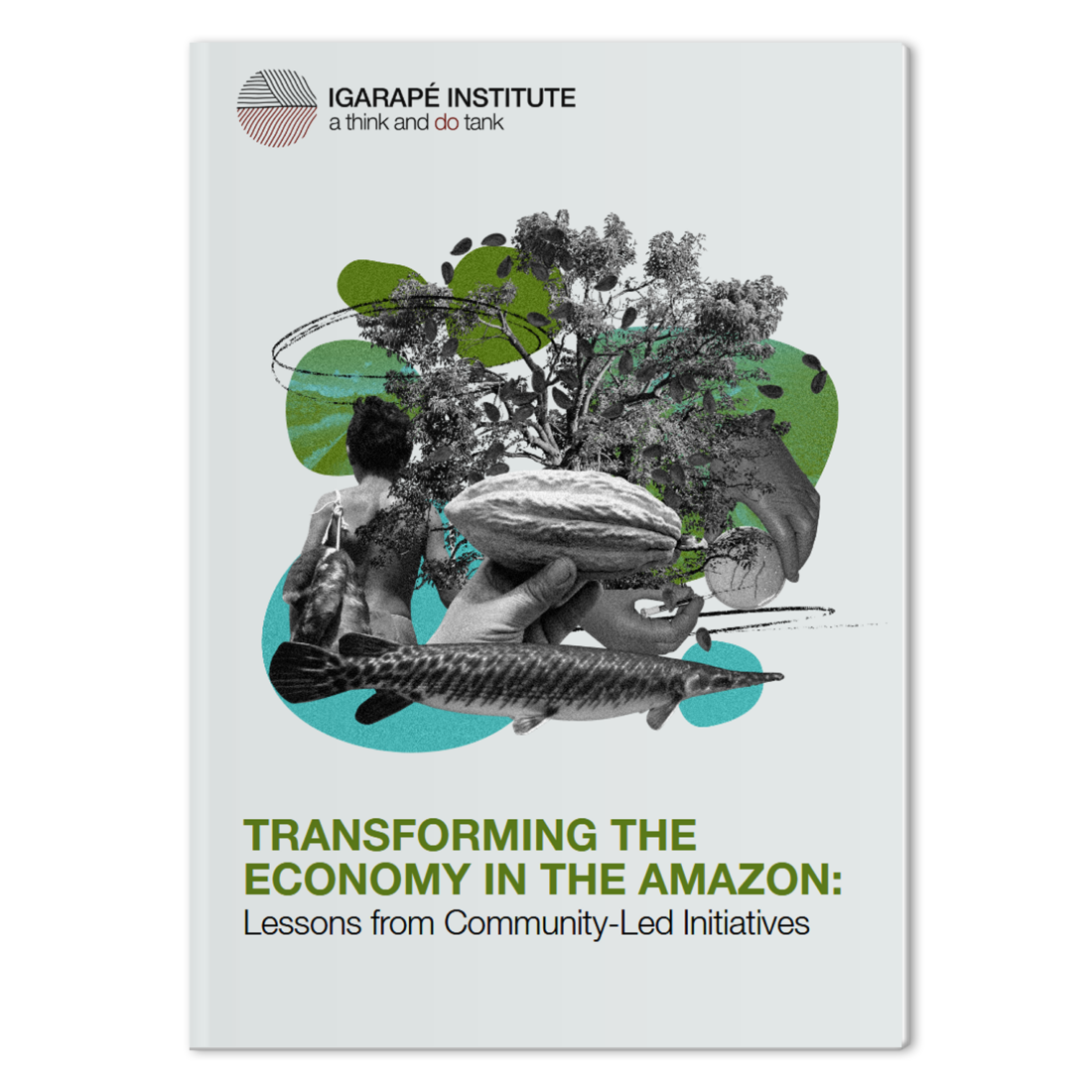Transforming the Economy in the Amazon

This publication presents an analysis of six community-led initiatives in the Amazon, organized around practical lessons that address the region’s challenges. Among the most pressing challenges are the advance of deforestation, the intensification of illicit activities, pressure on protected territories, biodiversity loss, barriers to accessing qualified markets, inadequate infrastructure, and the scarcity of economic opportunities that foster local autonomy.
In response to these realities, the initiatives analyzed highlight the transformative potential of the bioeconomy and nature-based solutions as viable paths to reconcile environmental conservation with inclusive socioeconomic development. The active participation of local populations in planning, decision-making, and implementation is central to all the experiences documented.
The selected cases were systematized based on the strategies adopted, impacts achieved, challenges faced, and opportunities for scalability. Despite their unique characteristics, the six initiatives share common elements such as the use of innovative production models, the sustainable management of local resources, and the strengthening of ethical value chains — all of which contribute to expanding local autonomy, restoring ecosystems, and enhancing the socio-environmental resilience of the territories.
The initiatives explored address various dimensions of sustainability. The Ochroma Project and Belterra Agroflorestas illustrate how regenerative practices can restore degraded areas while generating income. The Association of Rural Producers of Carauari (Asproc) and the Kallari Cooperative demonstrate the value of community-led management of sustainable production chains. The Origens Brasil Network and Aceleradora Amaz highlight the power of collaborative networks in creating ecosystems that support impact-driven entrepreneurship.
More than a compilation of best practices, this publication seeks to systematize lessons that can be replicated and adapted to other contexts, showing that it is indeed possible to build economic models that are more equitable, resilient, and forest-based.
Read the publication
Learn more about the topic in Strategic Articles AE 63 Follow the Money: Environmental Crimes and Illicit Economic Activities in Brazilian Amazon Production Chains and AE 59 Inventory of data on economic activity and deforestation in the Amazon Basin, as well as the study Re-Imagining Bioeconomy for Amazonia, developed in partnership with the Inter-American Development Bank (IDB).



